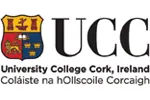We're moving! This site will be relocating to goingto.university in 2026. Please update your bookmarks to the new address.


Ireland
University College Cork (UCC)| The award | How you will study | Study duration | Course start | Domestic course fees | International course fees |
|---|---|---|---|---|---|
| BSc (Hons) | Full-time | 4 years | September | EU 3000 | EUR 3000 |
Overview
Environmental Science is the study of physical, chemical and biological processes of the Earth and of human interactions with these processes. It uses a multi-disciplinary perspective to consider approaches to protecting, preserving and managing the environment.
Environmental Science has become more important in recent years because of the need to protect the natural and human environment for present and future generations.
Environmental issues such as climate change, conserving biodiversity,management of waste and natural resources, production of energy and protecting human health are now high on the agenda of all governments, resulting in more stringent regulations and standards. This in turn has created a greater need for knowledgeable and appropriately trained Environmental Scientists.
Dealing with thesecurrent and future environmentalissues requires a multidisciplinary approach, an open mind, and problem-solving skills.
Course Details
Year 1 Modules:
BL1002Cells, Biomolecules, Genetics and Evolution (5 credits);
BL1004Physiology and Structure of Plants and Animals (5 credits);
BL1005 Habitats and Ecosystems(5 credits);
CM1003Introductory Chemistry for Environmental Scientists (5 credits);
ER1006Applied Earth Systems (5 credits);
EV1002The Environment (5 credits);
GG1010Introduction to Physical Geography (5 credits);
GL1001Introduction to Geology (5 credits);
GL1004Geological Evolution of Ireland (5 credits);
MA1001Calculus for Science Part 1 (5 credits);
PY1009Physics for the Environmental Sciences I (5 credits)
Year 2 Modules:
Practical Ecological Skills; Fundamentals of Ecology; Mathematical Modelling for Biological and Environmental Sciences; Introductory Organic Chemistry for Environmental Sciences; Practical Environmental Science; The Environment and Human Health; Quaternary Environments and Geomorphology; Introduction to Geoinformatics; Introductory Sedimentology for Non-Geologists; Physics for the Environmental Sciences; Introduction to Biostatistics; Invertebrate Diversity
Year 3 Modules:
Core
Conservation Biology; Environmental Science in the Field; Environmental Chemistry and Analysis; Environmental Science Literature Review; Sustainable Use of Freshwater; Ecology and Hydrology of Wetland Systems; Environmental Remote Sensing; Sedimentary Environments; Environmental Physics; Biostatistics
Electives
Introduction to Ecotoxicology; Analytical Chemistry; The Atmospheric Environment; Coastal and Marine Geomorphology; Advanced Geographical Information Systems; Geohazards and Research Skills; Valuing the Environment; Plants & Hostile Environments; Practical Invertebrate Skills
Year 4 Modules:
Core
Environmental Impact Assessments; Environmental Monitoring and Assessment; Environmental Risk Assessment and Auditing; Environmental Science Research Project
Electives
Advanced Ecotoxicology; Landscape Conservation and Management; Biology and Management of Alien Species; Architecture and Planning; Advanced Analytical Chemistry; Atmospheric Chemistry and Air Pollution; Practical Offshore Marine Science; Environmental Work Placement; Climate Variability and Change; Market Forces and the Environment; Food Production; Environmentally Protective Management of Plant Pests and Pathogens; Crop Physiology and Climate Change; Biostatistics
See the College Calendar for additional information on the Programme and the Book of Modules for further information on the modules.
Fact File
Course Code: CK404
Course Title: Environmental Science
College: Science, Engineering and Food Science
Duration: 4 years
Teaching Mode: Full-time
Qualifications: BSc (Hons)
NFQ Level: Level 8
Costs: Full-time EU/EEA/Swiss State undergraduate students may be exempt from paying tuition fees. The State will pay the tuition fees for students who satisfy the Free Fees Criteria. In 2016/17 the Student Contribution Charge will be EUR 3,000 and the Capitation Fee will be EUR 165.Students are required to pay a contribution to travel and accommodation for site visits and field trips that are included in their programme.
2017 Entry Requirements: Refer to CK404
Entry Points: CK404: 430 in 2016. Points may vary each year.
Course Practicalities
Some modules incorporate practical laboratories and for these you may be required to purchase basic safety items such as a laboratory coat or goggles. Other modules may require specific items such as rubber boots and outdoor waterproof clothing. For more information on course practicalities, please contact us:
T: +353(0)21 490 4650
Assessment
Written exams will take place before Christmas and in May. Not all modules will have formal examinations. Many modules use other types of assessment including essays, practical exercises, field reports, multiple-choice-question tests, assessed presentations and project work. The range of assessments provides a broad skills-base of relevance to future employment.
Application Procedure
Refer to CK404.
Further Contact Information
Biological, Earth and Environmental Sciences
T: +353(0)21 490 4650
2017 Entry Requirements: Refer to CK404
Entry Points: CK404: 430 in 2016. Points may vary each year.
Contact University College Cork (UCC) to find course entry requirements.
Below are some suggested courses at other providers that you may also be interested in:
Film Production BA (Hons), Cert HE
Catalyst - Institute for Creative Arts and Technology
Find out morePolitical Science Bachelor of International Liberal Arts
International College of Liberal Arts (iCLA) at Yamanashi Gakuin University
Find out moreNursing Professional Bachelor Degree, BNurs
KdG University of Applied Sciences and Arts
Find out moreMaster in Design for Mobility Solutions Master Degree
IAAD. - Institute of Applied Art and Design
Find out moreSpatial, Transport and Environmental Economics - Real Estate Economics and Finance Master Degree
Vrije Universiteit Amsterdam
Find out moreIf you do not meet the entry requirements for this course then consider one of these courses from another institution:
There are 338 other courses listed from University College Cork (UCC). A selection of these are displayed below:
Join the StudyLink email list and never miss a chance to turn your study abroad dreams into reality!
